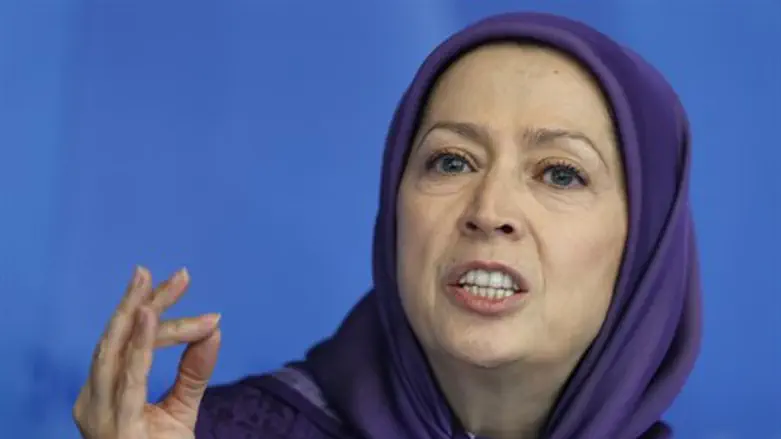
Maryam Rajavi, president of the National Council of Resistance of Iran (NCRI) who currently lives in exile in Paris, has strongly condemned the nuclear deal sealed by world powers with Iran on Tuesday, warning of the disastrous consequences for the region - and for Iran.
In an interview on Thursday with the London-based Arabic paper Asharq Al-Awsat, she said the Iranian regime is now in a position of power vis-a-vis the West, and will try to develop a nuclear weapon despite the deal, causing a nuclear arms race in the Middle East.
The head of the NCRI, which holds a parliament in exile, noted that the deal stipulates the lifting of sanctions and a renewal of investments, providing Iran with the means to widen its funding of terror in Syria, Yemen, Lebanon and other states.
She revealed that the Islamic regime in Tehran bases its policy on three guiding lines: the nuclear program, internal suppression of all opposition, and an export of terrorism.
Now due to the large influx of cash accompanying the deal, she noted it is possible that power struggles will take place at the highest levels of the regime, and likewise the internal tension and crackdown on the Iranian street will likely grow greatly given the release of economic pressure from the sanctions.
Rajavi called on the international community to work to replace the Islamic religious regime in Iran so as to aid the Iranian people, emphasizing that the Western concessions to Tehran in the deal do not serve the Iranian people at all.
Supporting Rajavi's concerned take of the deal, Iranian President Hassan Rouhani has touted the nuclear deal as being a concession to all of Iran's goals.
The deal ignores key covert nuclear installations in Iran, and likewise stipulates that the West will train Iran to defend its nuclear program from sabotage, meaning a possible peaceful route for Israel to delay Iran's march to the nuclear bomb would be removed due to the West's intervention.
